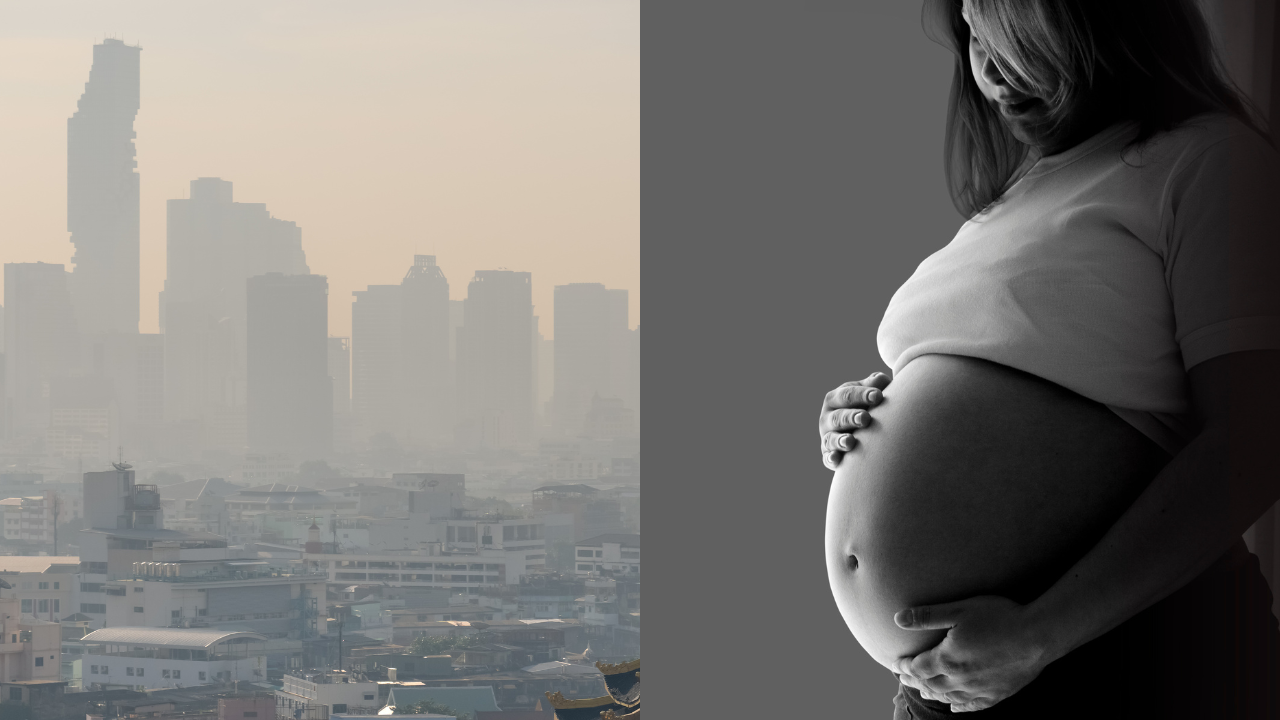-
news
-
Health
Are we doing enough to protect pregnant women and children from the hidden dangers of pollution?
Not only is it important to keep pregnant women and babies away from pollutants, but it is also important to ensure that pregnant women and young children keep themselves safe from exposure to pollution levels or dangerous chemicals on a day-to-day basis.

Image – Canva
Pollution remains a low-priority issue, posing significant health risks to expectant mothers and children. It’s not just a general health hazard But there is a risk with long-term consequences for vulnerable groups. Exposure to pollution during pregnancy can weaken a woman’s immune system, leading to complications. Low birth weight and growth problems In infants. Small particles such as PM2.5, carbon monoxide and nitrogen dioxide can be absorbed by the fetus, worsening existing conditions or creating new conditions.
Polluted water is another serious concern. Pollutants like nitrates and heavy metals increase the risk of miscarriage and hinder healthy fetal developmentAdditionally, noise pollution, which is often ignored, can increase stress and hormonal imbalance in pregnant women. Complications during pregnancy,
Children are also in equal danger. with Underdeveloped immune system and immature organsThey are more susceptible to respiratory problems nutritional deficiencies Due to polluted air and water. Dealing with various forms of pollution is essential not only for the safety of mothers and their offspring but also to ensure a healthy society for future generations. To know more, we spoke to Dr Priya Gupta, Senior Consultant, Obstetrics and Gynaecology, Cocoon Hospital, Jaipur.
impact on young children
“Pollution is harmful for young children because their bone marrow system They are less developed and their lungs are also not fully mature. Young children are at risk of developing respiratory complaints including asthma and peptic infections airborne pollutantsDr. Gupta says, if children do not have a proper source of drinking water, they are at risk of nutritional deficiencies as well as gastroenteritis.
Children who are exposed to excessive noise for long periods of time may have difficulty learning as it has harmful effects on their brain development and mental health.
According to Dr. Gupta, do’s and don’ts for pregnant women and small children:
What to do:
1. Air quality control: Stay indoors when pollution is high and use air filters.
2. Hydration: Have plenty of clean potable water on hand.
3. Nutritious diet: Eat food that is rich in vitamins C and E, as it helps with oxidative stress caused by pollutants.
4. Protective measures: Always wear an N95 mask when going out.
5. Cleanliness: Clean your home regularly to reduce indoor pollution.
What not to do:
1. Avoid crowded areas: Stop any activity in busy or industrial areas.
2. Avoid using harsh chemicals: Use natural and organic products for cleaning.
3. Do not burn fuel indoors: Kerosene or wood burning stoves should be avoided as they pollute the air.
4. Limit outdoor activities: Avoid working in places with excessive smog.
Get the latest news live on Times Now with breaking news and top headlines from around the world.


